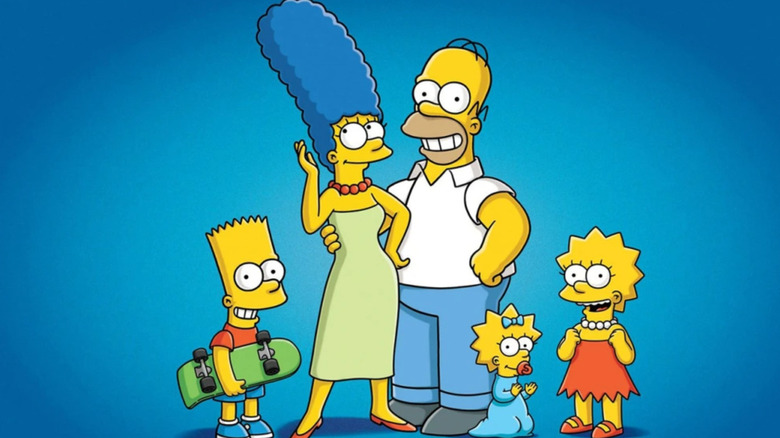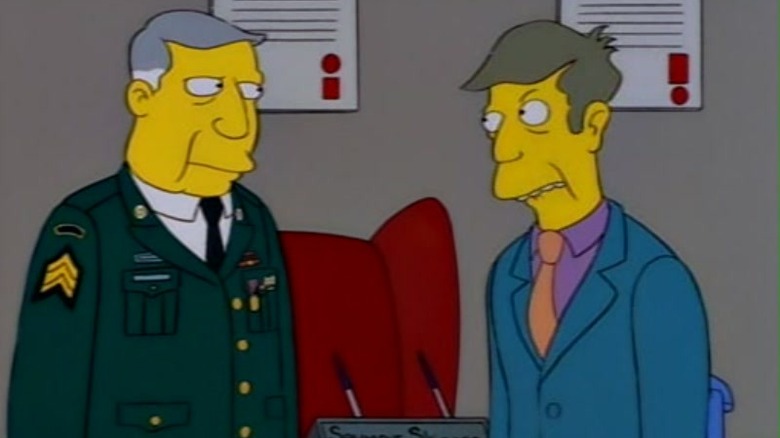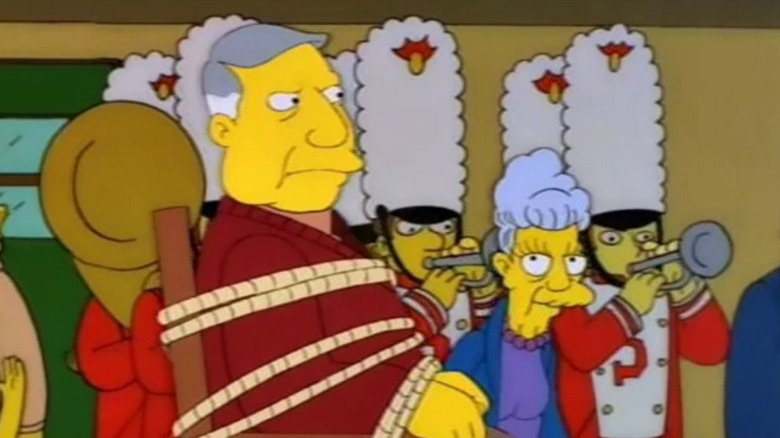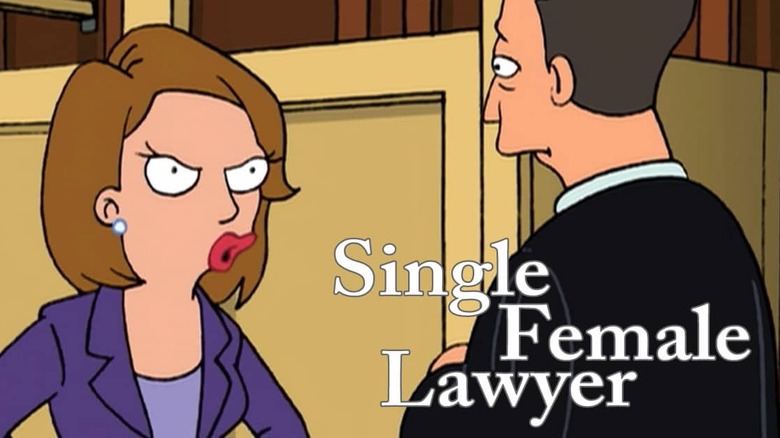A Simpsons Writer Still Defends This Infamous Episode
Across the 700+ episodes of "The Simpsons," you'd be hard-pressed to find one which exists in as much infamy as the second episode of season 9, "The Principal and the Pauper." Principal Seymour Skinner (Harry Shearer) is revealed as an imposter named Armin Tamzarian, a former street punk who took the name of his MIA commanding officer after the Vietnam War. This deception is unveiled when the real Skinner (Martin Sheen) returns to Springfield, but by the episode's end, the townspeople have decided they like the fake Skinner better. Thus, they send the real thing packing and vow to forget the whole episode.
Many have cited the episode as the beginning of the end for "The Simpsons," the series' "jumping the shark" moment. One of the most frequent criticisms was changing a pre-established character like Skinner for the sake of a single episode. Shearer himself shares this discontent. However, one person who still defends the episode is its writer, Ken Keeler. Let's find out why.
Keeler's defense
"The Simpsons: The Complete Ninth Season" DVD boxset (released in 2006) includes a commentary track for "The Principal and the Pauper." The commentators are Keeler, episode director Steven Dean Moore, and Bill Oakley & Josh Weinstein (showrunners during the episode's production). All of them are proud of the episode — Keeler even calls it, "the best episode of television, I feel, I ever wrote." For reference, this is the man who wrote "Two Bad Neighbors" and "The Mysterious Voyage of Homer," not to mention "Futurama" episodes like "Godfellas" and "The Devil's Hands Are Idle Playthings."
The creators express that they are unbothered by the criticism, because that was the reaction they were aiming for. Keeler admits he was out to annoy the fans, while Oakley says, "[Weinstein and I] were going out and I really wanted to leave the whole [show] in ruins." Weinstein also states that he and Oakley considered the episode "an experiment," rhetorically asking, "One episode out of five million, we can't try something different?"
However, the commentators admit that they were caught off guard by the extent and endurance of the backlash. Keeler asks fans who dislike the episode to consider, "Doesn't it strike you as strange you feel so strongly about Principal Skinner?"
Keeler's thesis
In his defense of the episode, Keeler also revealed the theme he was trying to tackle with its story. As Keeler summarizes:
"['The Principal and the Pauper'] is about a community of people who like things just the way they are. Skinner's not really close to these people — you know, he's a minor character — but they get upset when someone comes in and says, 'This is not really the way things are,' and they run the messenger out of town on the rail. When the episode aired, lo and behold, a community of people who like things just the way they are got mad. It never seems to have occurred to anyone that this episode is about the people who hate it."
Oakley also notes the episode's ending, where the real Skinner is exiled and the whole town is ordered by Judge Snyder to never mention him again. As Oakley puts it, "The whole point of the ending was everyone was supposed to mentally reset, to the point where this is Skinner again, but people just weren't able to do that."
So why weren't they? The fans weren't on the same wavelength as the writers. "The Simpsons" took off in the 1990s and earned an early internet fanbase. Fans of this sort tend to care about episode-to-episode continuity, looking to it as that which bestows meaning upon a work. "The Principal and the Pauper," even in spite of the ending, spits in the face of established lore. But continuity has never been a priority for "The Simpsons" writers — just watch the show and you'll see that.
Online fan recalcitrance has only gotten worse since "The Principal and the Pauper" aired in 1997, and the writers have continued poking fun at it.
A Futurama follow-up
"The Principal and the Pauper" was the final episode of "The Simpsons" that Keeler wrote; afterward, he jumped ship to creator Matt Groening's next series, "Futurama." One of the first "Futurama" episodes he wrote, "When Aliens Attack," contains similar meta-commentary to the kind in "The Principal and the Pauper."
Chunks of the episode are a simple "Independence Day" send-up; the alien Omnicronians invade Earth and destroy landmarks. What connects this with "Pauper" is why the aliens are attacking; they want to see the finale of "Single Female Lawyer," a 20th-century TV program knocked off the air during its original airing. Omicron Persei 8 is 1000 light years away from Earth, so the Omicronians only received the series recently.
Since no copies of the episode exist, the Planet Express crew airs their own version. Leela (as protagonist Jenny McNeal) tries to stage a twist ending, quitting the law and proposing to the judge (played by Professor Farnsworth). Fry (and the Omicronians) veto this ending, forcing Jenny to remain, well, a single female lawyer. As Fry puts it, "Clever things make people feel stupid, and unexpected things make them feel scared." It's hard not to imagine Keeler thinking about the response to "The Principal and the Pauper" when writing this line.
"When Aliens Attack" ends with Fry reciting the cardinal rule of TV: "At the end of the episode, everything's always right back to normal." The shot then pans out to New York in flames from the invasion. However, sure enough, things are back to normal in the next episode. This, just like the ending of "The Principal and the Pauper," is Keeler lampooning how for TV writers, the status quo is the law.



